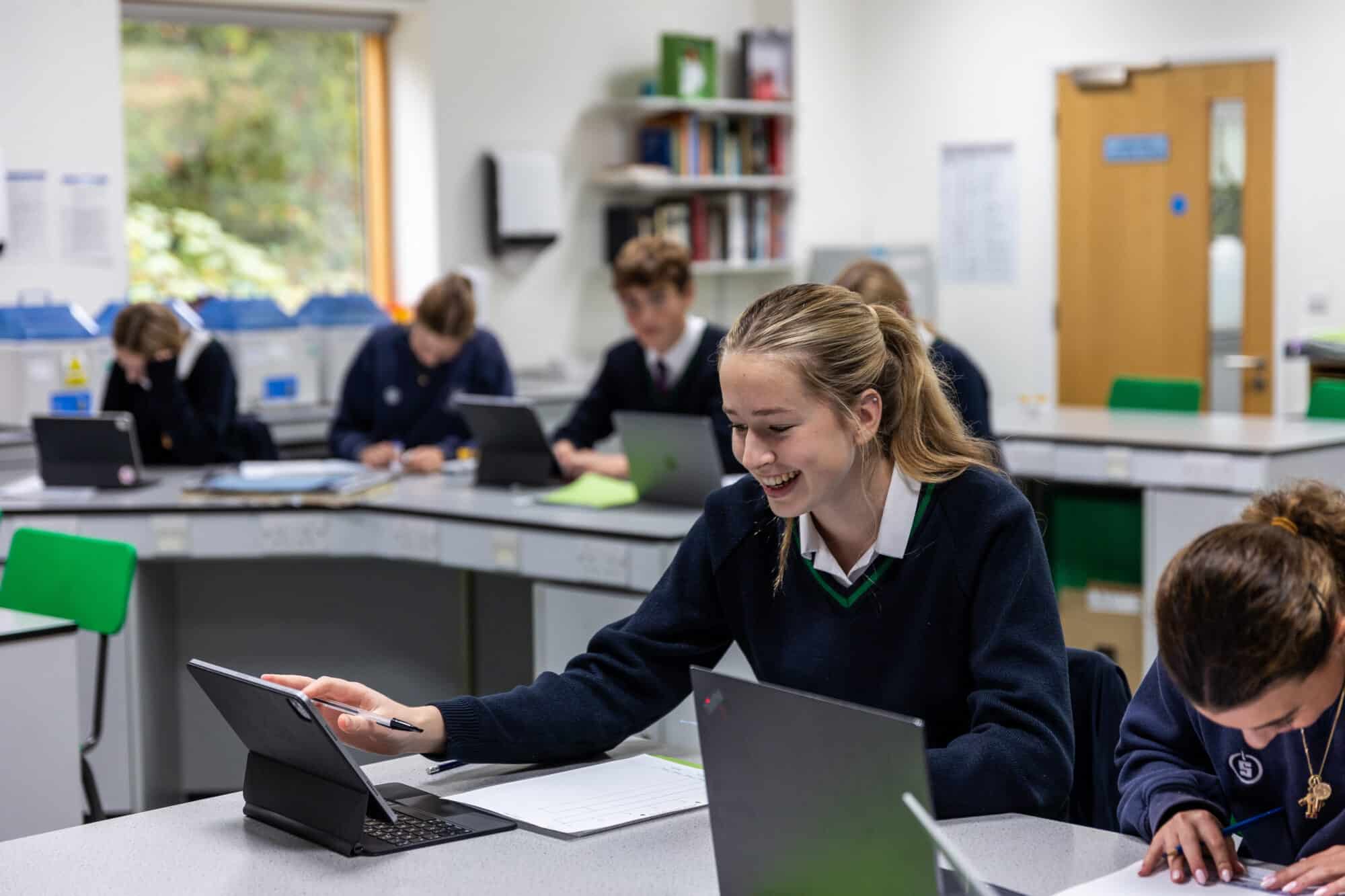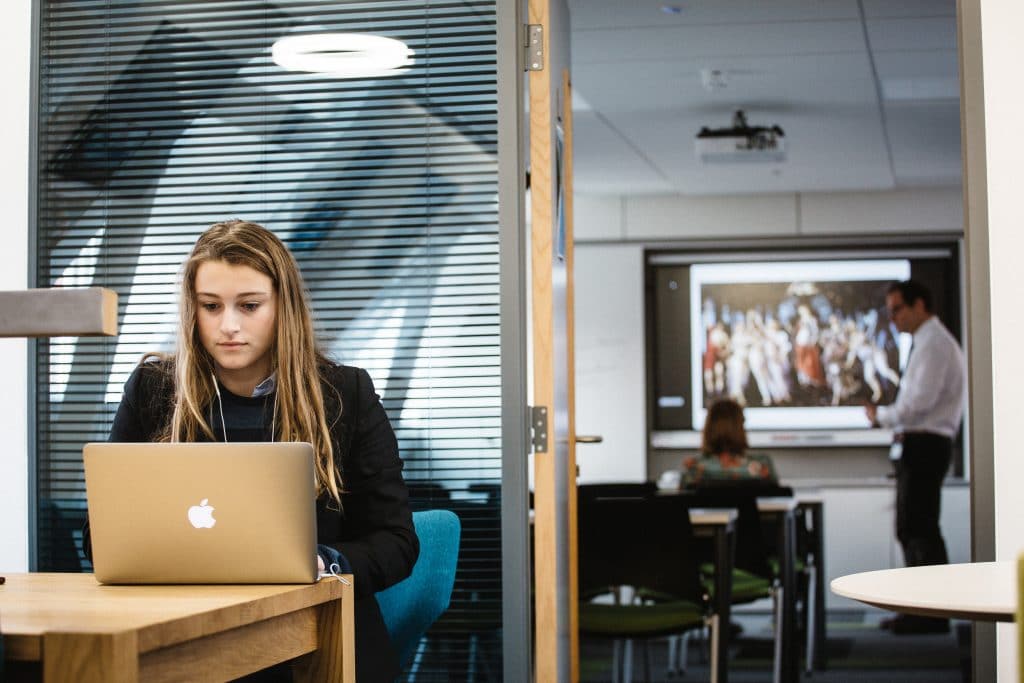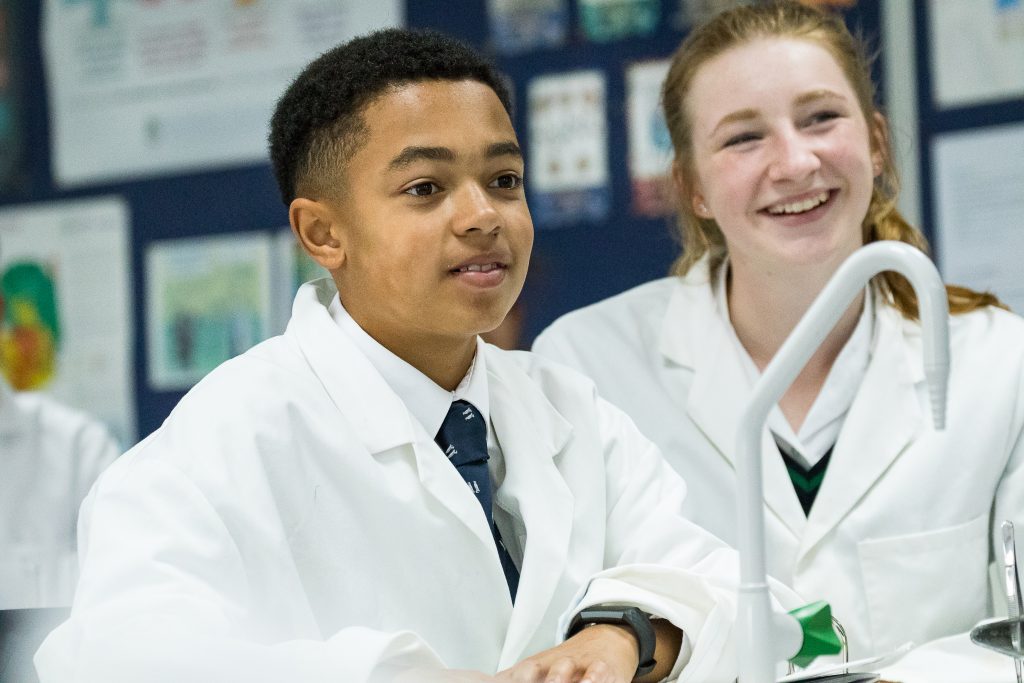
In 1842, eight years before the founding of this College, Ada Lovelace, widely regarded as the first computer programmer, wrote and published the first algorithm ever specifically tailored for implementation on a computer.
A century later, her notes were a critical source of inspiration for Alan Turing’s work on the first modern computers in the 1940s. Fast-forward 80 years and the government has published a call to action on the current and future demand for digital skills, stating that ‘we live in a world where new technologies play an increasingly important role across the economy and society.’
We also hope to inspire creativity as we begin a partnership with the School of Coding, who will be introducing our Faulkner’s pupils to the worlds of Virtual Reality and Robotics.
Alongside this, a report from the Confederation of British Industry speaks of a widening digital skills gap and reveals ‘companies are losing around £63bn a year due to the lack of skills, which could ultimately jeopardise the UK’s competitiveness, deter investment and limit people’s ability to access the jobs and services that technology offers.’
Improving digital literacy
Bradfield’s Education for Life ethos promotes innovation, creativity and enterprise, all valuable assets for our pupils to possess if we are going to close that skills gap and all of which are at the heart of the Computer Science curriculum, making the subject a compelling option at both GCSE and A Level.
For many of our pupils, the journey of learning key technological abilities begins in Faulkner’s, where digital literacy is ingrained in academic life. My department, with its dedicated Computer Science teachers, provides every Year 9 pupil with a range of essential skills that they can implement throughout their time here.
We help pupils get their heads around using tech to stay organised as they plan for their GCSE studies, show them how to utilise devices and software to their advantage in their academic subjects and help them understand how to stay safe online and use the internet in a responsible manner.
We are experiencing a growth in occupations where workers use digital skills creatively and to solve problems. Research that forms part of the government’s call to action shows that future workforces will need vital skills in information and data literacy, communication and collaboration, content creation, safety and identity, all of which feature within the GCSE and A Level courses.
Preparing pupils for the world of work
Staples of the technological world including algorithms, cyber security, coding and software development are coupled with forward thinking topics on the syllabus, with studies in the ethical, legal and environmental impacts of digital technology on wider society. We also hope to inspire creativity as we begin a partnership with the School of Coding, who will be introducing our Faulkner’s pupils to the worlds of Virtual Reality and Robotics.
We live in a world where new technologies play an increasingly important role across the economy and society.
Margot James, Minister for Digital and the Creative Industries
We are preparing our pupils for a world of work in which they are likely to experience multiple careers across multiple sectors and a technological education is essential in providing them the transferable skills to thrive in that environment. There is also a focus on non-technical employability skills, particularly interpersonal qualities, cognitive competencies and learning strategies, traits which form the bedrock of a Bradfield education.
Addressing the gender gap
Being at a co-educational school means we also have an opportunity to address the gender gap in the technology sector. A PwC study of 2,000 A Level and university students shows that the gender gap begins in schools with only 3% of female respondents stating they would consider a tech career compared to 61% of males.
We hope to continue to see the recent growth in numbers of both pupils and girls studying Computer Science at Bradfield and instil an outward-looking, global mindset by taking them to places like Berlin and Silicon Valley to see how the subject applies to the real world.
I certainly hope that these opportunities will inform and inspire a new generation of tech workers, who will build on the foundations from their own education for life.



